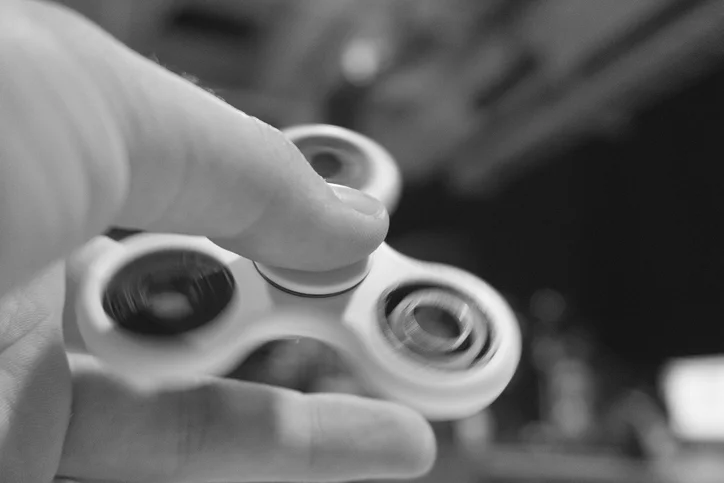Are Fidget Spinners Good for Your Health?
/Whirling colorfully at the center of controversy are fidget spinners, those three-pronged plastic playthings that are either the saviors of people with ADHD or the worst thing to hit classrooms since click-clacks, depending on whom you speak to.
Fidget spinners sit on a ball bearing held between one's fingers and revolve easily with a gentle push. They can spin in a user's hand, or on a hard surface. Videos of “tricks” performed with fidget spinners have become a cottage industry on YouTube.
According to the gadget's inventor, Catherine Hettinger, the fidget spinner was created to be more than just a toy. She told The Guardian, "There’s just a lot of circumstances in modern life when you’re boxed in, you’re cramped in, and we need this kind of thing to de-stress."
Meanwhile, some schools in the U.S. and the U.K. are banning the twirling triskelions, arguing the distraction they create in the classroom outweigh any mental health benefit they might afford their users. A spokeswoman for the North Hills School District in Pennsylvania told The Morning Call that "In some of our buildings, we have asked students not to bring them to school or only use them during indoor recess except in cases where they are used appropriately as an accommodation for a student with special needs."
Is there any science to back up the inventor's claims? A tiny bit.
A 2015 study published in the journal Child Neuropsychology indicated that movement can be helpful for children with ADHD as a means to self-regulate alertness. The researchers reported that it compensates for "underarousal" and "acts to improve cognitive performance.”
Sounds great, unless you're the kid in Algebra class without ADHD who is trying to concentrate amidst all that spinning and whirling. Clinical psychologist John Mayer, PhD, told Women's Health that fidget spinners are “horrible,” adding that “Even if they have some therapeutic benefit, a diversion device like this takes the person away from developing compensation techniques that are necessary for the long-term control of their condition and better functioning.”
Movement – specifically exercise – has ever been a boon to mental health, but how well does fidget spinning understudy for legitimate exercise in the context of mental health? James Swanson, Psychologist at the University Of California, Irvine, told ATTN:
“There’s some accumulating evidence that exercise and movement is a good way to alleviate some of the symptoms of ADHD. Whether fidgeting will do this or not compared to exercise, where you are more active than fidgeting, is an open question.” Swanson recommended that more extensive, fidget-specific, studies be conducted.
So, although they are far less likely to explode than click-clacks, fidget spinners don't offer much to the average user beyond distraction – not that we all couldn't use some of that from time to time.





































































